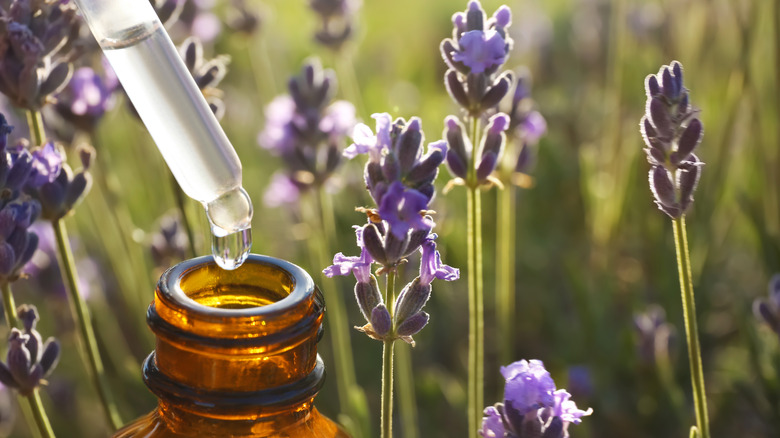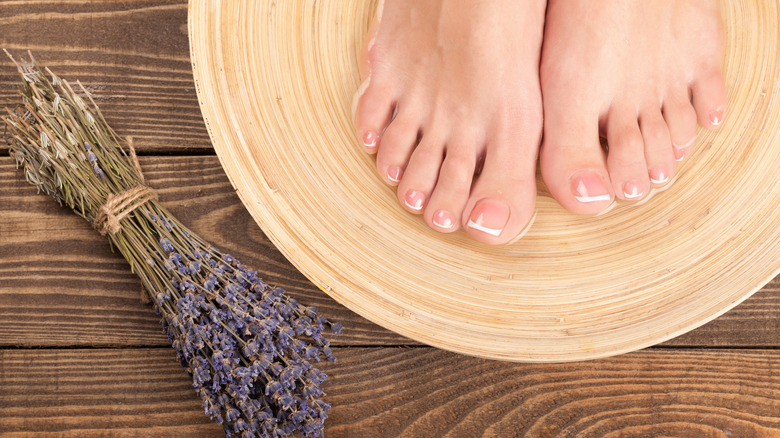The Unexpected Effect Lavender Has On Your Health
Known for the signature purple color of its flowers, lavender is an herb originating in regions of northern Africa and the Mediterranean (via Medical News Today). Nowadays, it's used in a variety of beauty products from oils to creams to soaps and to facial masks, but the plant has an even far more colorful backstory.
Throughout centuries and across cultures, lavender was used for a variety of purposes. In some cases, it was used in part for spiritual practices to keep evil spirits at bay, as an offering of good luck for travelers, as a medical remedy for ailments such as sore throats, headaches, indigestion, and wound healing, per Healthline. More recently, lavender has grown in popularity as a relaxing essential oil thought to aid in the reduction of stress and anxiety, physical pain, and increase one's quality of sleep. What may be lesser known is that if you've been dealing with a stubborn nail infection, lavender may be able to help with that, too (via ScienceDaily).
Lavender may help treat fungal infections
Athlete's foot, ringworm, and mycotic nails are three common and highly contagious fungal skin infections (via Cleveland Clinic). Growing in damp environments such as showers, locker rooms, and sweaty shoes, athlete's foot can develop into a scaly rash between one's toes, while toenail fungus will cause nails to yellow, thicken, and break. Treatment for these conditions can be difficult as reinfection is common and recovery times can take longer. Also, some infections can be quite resistant to topical treatments.
In some instances, these infections can cause serious health complications for those who are immunocompromised (via Cleveland Clinic). For others, the thought of donning a pair of sandals in the summertime is anxiety-inducing. However, a 2011 study conducted by the Society for General Microbiology found that lavender oil may be able to penetrate "antifungal-resistant infections," including athlete's foot, ringworm, and those of the toenails and scalp. Co-leader of the study Professor Lígia Salgueiro elaborates on the significance of these findings, stating, "Lavandula oil shows wide-spectrum antifungal activity and is highly potent. This is a good starting point for developing this oil for clinical use to manage fungal infections."
It's important to note, however, that while lavender shows much potential in terms of its medicinal value, research on its effects has been minimal, and it has not been authorized by the U.S. Food and Drug Administration (FDA), per Medical News Today. Therefore, it's important that lavender not be used in place of formal medical treatment.


